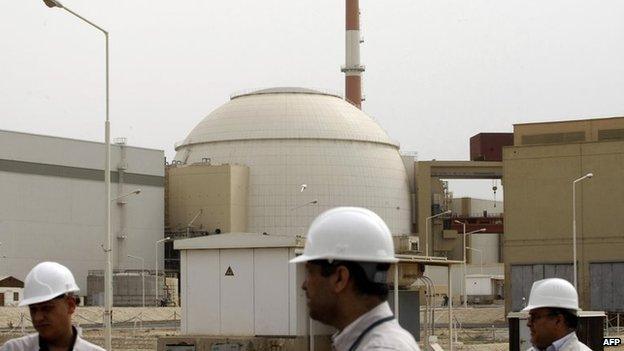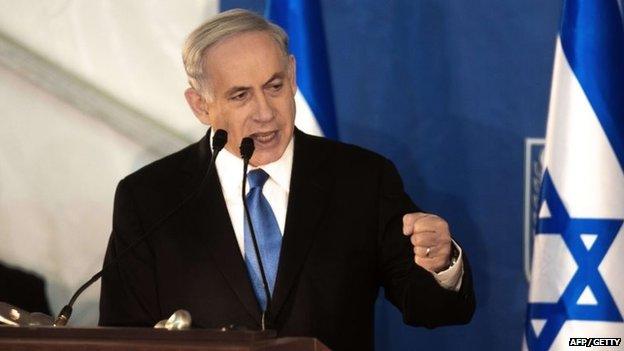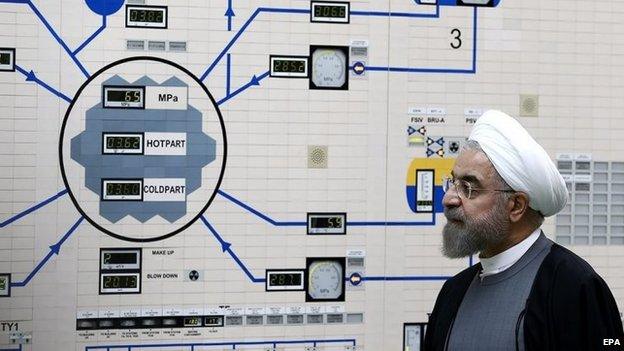Iran nuclear talks: US accuses Israel of 'leaks'
- Published

Negotiations with Iran over its nuclear programme are due to begin again on Friday
The US has accused Israel of selectively leaking information from the Iran nuclear talks to misrepresent its position in the negotiations.
White House spokesman Josh Earnest said that Israel was "cherry-picking" information and using it out of context.
Six world powers want Iran to curb its nuclear programme in return for the lifting of sanctions.
Negotiations with Iran are due to begin again on Friday.
Iranian officials said that US Secretary of State John Kerry will also be travelling to Geneva this weekend for two days of talks with Iran's foreign minister.
'Selective sharing'
On Wednesday, Mr Earnest that the US was mindful of keeping negotiations private because of selective leaks on the part of Israel.
"There's no question that some of the things that the Israelis have said in characterising our negotiating position have not been accurate," he said.
State Department spokeswoman Jen Psaki confirmed that there was a "selective sharing" of information.
"I think it's safe to say that not everything you're hearing from the Israeli government is an accurate reflection of the details of the talks," she said.
Unnamed US officials told The Associated Press news agency that politically motivated leaks from Israeli officials had made it impossible for the US to continue to share all details of the talks.

Mr Netanyahu is due to speak at the US Congress in March
The accusations come less than two weeks before Israeli Prime Minister Benjamin Netanyahu is due to address a joint session of the US Congress on the threat from Iran.
There has been increasingly strained ties between the US and Israel over the nuclear deal with Iran.
Israel has made it clear that it is vehemently opposed to Iran acquiring nuclear weapons.
Bomb research
On Thursday, the UN's nuclear watchdog said that Iran was still failing to answer questions about whether it had conducted nuclear bomb research.
The confidential report by the International Atomic Energy Agency (IAEA), said that there has been little progress into its investigation into possible military dimensions of Iran's nuclear programme.

Iran's President Hassan Rouhani visited the Iranian Bushehr nuclear power plant in January
This could potentially complicate efforts by the six world powers to reach a deal with Iran.
The US with Britain, France, Germany, Russia and China are currently working on an interim agreement for the end of March.
The talks had previously been due to end in November 2014, but were extended to June 2015 after the parties failed to reach a deal.
The West suspects Iran is covertly seeking nuclear weapons capability. Iran denies it has a nuclear arms agenda and insists it is using uranium enrichment purely for energy purposes.